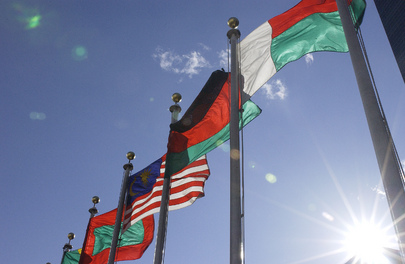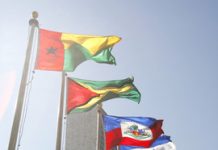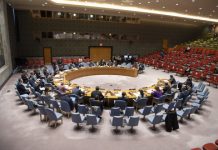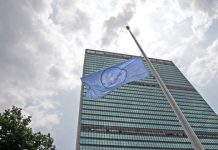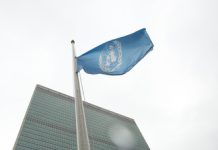Lebanon escalation: 1,500 blast victims still in hospital, says WHO
Days since an unprecedented attack on thousands of mobile communication devices reportedly belonging to Hezbollah fighters in Lebanon, almost 1,500 people are still receiving treatment in hospital, the UN World Health Organization (WHO) said on Friday.
Dr. Abdinasir Abubakar, WHO Representative in Lebanon, told UN News that some patients were waiting for surgery while others were recovering. Approximately 3,000 people sought treatment altogether, initially overwhelming medical teams.
Israel has been widely blamed for the attacks but has not accepted responsibility.
The WHO official expressed the UN agency’s solidarity with Lebanon’s hospital staff, noting that help provided so far included mass casualty simulation training, the distribution of trauma kits, blood transfusion support and coordination with health sector partners.
Since the mobile device explosions this week, bombing has been stepped up on both sides of the Israel and Lebanon border, with strikes reported in northern Israel and Beirut. The violence is directly linked to the ongoing war in Gaza and continues to fuel fears of a wider escalation in the Middle East.
“The tension is increasing every day,” Dr Abubakar said, adding that WHO planned to preposition more supplies and medication for trauma care, while the conflict continues.
To listen to Dr Abubakar’s interview with UN News, click on the UN News website audio hub.
Mpox alert: UNICEF issues $58.8 million appeal to stop outbreak in six African countries
The UN Children’s Fund, UNICEF, issued an urgent appeal for nearly $59 million on Friday to halt the rapid spread of mpox in six African countries.
This includes in Burundi, where youngsters have been impacted the most, although no-one has yet died from mpox there, unlike in neighbouring Democratic Republic of the Congo.
Dr Paul Ngwakum, UNICEF Regional Health Advisor for Eastern and Southern Africa, said that “of the nearly 600 reported cases in Burundi, two-thirds are children”. He warned that the situation was escalating rapidly with a more than 40 per cent increase in infections in the last three weeks:
“We have an opportunity to end this outbreak in a very short time period because the geographical area is kind of limited and with concerted effort from all partners, I think, we can limit the spread, we can contain the virus so we can stop the outbreak without any loss of life.”
Dr Margaret Harris from the UN World Health Organization (WHO) said that the stark contrast between the high number of suspected deaths from mpox in the Democratic Republic of the Congo compared with Burundi was probably owing to the longstanding humanitarian emergency in eastern DR Congo.
She said many of the children who have died in DRC were “very immuno-suppressed through being severely malnourished” having already suffered the effects of conflict and other diseases.
Food security expected to take a hit from La Niña weather phenomenon: FAO
The La Niña weather phenomenon is expected to have severe consequences on global food security, the UN Food and Agriculture Organization (FAO) warned on Friday.
In a call to boost action to protect rural communities at high risk from La Niña – whose effects are expected between now and next March, the FAO said that 282 million people already face acute food insecurity and need assistance.
La Niña is characterized by the cooling of central and eastern Pacific waters, disrupting global weather patterns. It occurs every two to seven years and humanitarians are concerned because it follows one of the strongest El Niño climate events on record.
The 2023-24 El Niño affected more than 60 million people worldwide, with extreme weather events including severe droughts in Southern Africa, said FAO, which insisted that climate change is driving more intense and more frequent climate extremes.
To help those most at risk from La Niña, the UN agency’s actions include helping fishing communities protect their boats ahead of storms, reinforcing river embankments ahead of floods, distributing drought-tolerant seeds and protecting livestock health.
Daniel Johnson, UN News
Music composed and produced by Joachim Harris. All rights reserved
Source of original article: United Nations (news.un.org). Photo credit: UN. The content of this article does not necessarily reflect the views or opinion of Global Diaspora News (www.globaldiasporanews.com).
To submit your press release: (https://www.globaldiasporanews.com/pr).
To advertise on Global Diaspora News: (www.globaldiasporanews.com/ads).
Sign up to Global Diaspora News newsletter (https://www.globaldiasporanews.com/newsletter/) to start receiving updates and opportunities directly in your email inbox for free.


